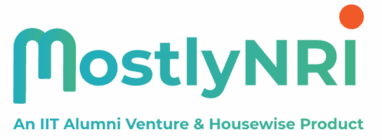Demat Account for NRIs: Common Questions and Answers
Investing in India can be a lucrative opportunity for Non-Resident Indians (NRIs), but understanding the nuances of opening and operating a Demat account is crucial for seamless transactions. A Demat account allows NRIs to hold shares and securities in an electronic format, making the process of investing in Indian stock markets more straightforward. Here, we address some of the most common questions NRIs have regarding Demat accounts:
1. What is a Demat Account, and Why Do NRIs Need It?

A Demat account, short for “Dematerialized account,” is used to hold shares and securities in an electronic format. NRIs need a Demat account to invest in the Indian stock market. This account simplifies the process of buying, selling, and holding securities such as shares, mutual funds, bonds, and exchange-traded funds (ETFs).
2. Can NRIs Open a Demat Account in India?
Yes, NRIs are permitted to open a Demat account in India. The account can be opened with any SEBI-registered Depository Participant (DP), which could be a bank, broker, or financial institution. However, NRIs need to comply with specific regulations under the Foreign Exchange Management Act (FEMA).
3. What Types of Demat Accounts Can NRIs Open?

NRIs can open two types of Demat accounts, each serving a different purpose:
- NRE Demat Account: This account is linked to an NRE (Non-Resident External) bank account. It allows repatriation of funds, meaning both the principal and earnings can be transferred abroad without any restrictions. This account is suitable for NRIs who wish to invest in repatriable securities.
- NRO Demat Account: Linked to an NRO (Non-Resident Ordinary) bank account, this account is used for investments where repatriation is not required. Earnings can be transferred abroad, but there are limits on the amount. This is ideal for managing income like rent, dividends, or other earnings in India.
4. What Documents Are Required to Open a Demat Account for NRIs?
NRIs need to submit the following documents to open a Demat account:
- A copy of the passport (proof of identity).
- Proof of overseas address (utility bills, bank statements).
- Recent passport-sized photographs.
- PAN card (Permanent Account Number).
- A copy of the visa or work permit.
- A filled and signed account opening form provided by the Depository Participant.
These documents must be self-attested and may require attestation by the Indian embassy or consulate in the NRI’s country of residence.

5. How Do NRIs Invest in the Indian Stock Market Through a Demat Account?
Once a Demat account is set up, NRIs can start investing in Indian stock markets through a Portfolio Investment Scheme (PIS). This scheme, governed by the Reserve Bank of India (RBI), allows NRIs to buy and sell shares of Indian companies on a repatriation or non-repatriation basis. To trade, NRIs must have:
- An NRI Demat account (linked to either NRE or NRO account).
- A trading account with a registered broker.
- A PIS account with an authorized dealer bank for routing all transactions.
6. Are There Any Restrictions on NRI Investments Through a Demat Account?
Yes, there are certain restrictions that NRIs must keep in mind:
- NRIs cannot trade intraday or speculate in the stock market. They are only allowed to trade on a delivery basis.
- Investments in certain sectors, like defense and real estate, may be subject to caps and specific conditions.
- NRIs can only own up to a certain percentage of paid-up capital in listed Indian companies. This percentage varies across sectors and is set by the RBI.
7. What Are the Tax Implications for NRIs With a Demat Account?

NRIs are liable to pay taxes on income generated from their investments in India, including capital gains tax. Here’s a brief overview:
- Short-Term Capital Gains (STCG): Gains from equity shares sold within one year of purchase are taxed at 15%.
- Long-Term Capital Gains (LTCG): Gains from equity shares sold after one year are exempt up to ₹1 lakh per year. Gains beyond ₹1 lakh are taxed at 10% without indexation.
- Dividend Income: Dividends from Indian companies are taxable for NRIs at 20% but can be reduced under a Double Taxation Avoidance Agreement (DTAA) between India and the NRI’s country of residence.
8. Can NRIs Convert Their Resident Demat Account to an NRI Demat Account?
Yes, NRIs who already have a resident Demat account must convert it to an NRI Demat account when their residential status changes. The process involves closing the existing resident Demat account and opening a new NRI Demat account with updated documentation reflecting their non-resident status.
9. How Are Repatriation and Non-Repatriation Transactions Managed in a Demat Account?

NRIs can invest on a repatriable basis through an NRE Demat account, where the investment’s principal and returns can be transferred outside India. Non-repatriable investments, managed through an NRO Demat account, mean that the principal remains in India, but NRIs can remit up to $1 million per financial year outside India under the RBI’s guidelines.
10. Is it Possible for NRIs to Appoint a Nominee for Their Demat Account?
Yes, NRIs can appoint a nominee for their Demat account, just like resident investors. The nominee could be a resident Indian or another NRI. This provision helps ensure that the securities are transferred seamlessly in the event of the account holder’s demise.
Conclusion:
A Demat account is an essential tool for NRIs looking to invest in Indian markets. Understanding the various aspects—from account types to tax implications—can help NRIs make informed decisions and maximize their investment potential. By staying compliant with the rules and regulations laid out by RBI and FEMA, NRIs can enjoy a smooth investing experience in India’s dynamic stock markets.
If you’re an NRI considering investing in India, ensure you choose a reliable Depository Participant and seek guidance from financial advisors familiar with NRI investments. This will help you navigate the complexities and optimize your returns. Happy investing!


0 Comments